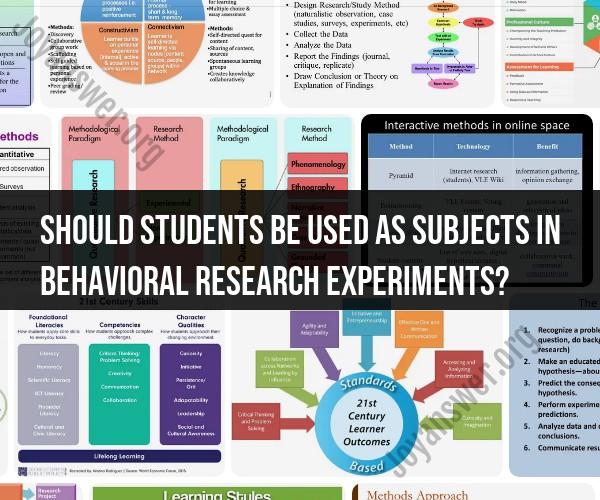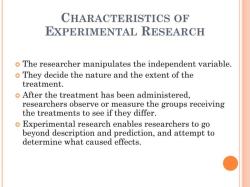Should students be used as subjects in behavioral research experiments?
The use of students as subjects in behavioral research experiments is a common practice in the field of psychology and other social sciences. However, there are important ethical considerations that researchers must address when involving students in research studies. Here are some key ethical considerations:
Informed Consent: Researchers should obtain informed consent from student participants. This means that students must be fully informed about the nature of the study, potential risks, benefits, and their rights as participants. They should voluntarily agree to participate without coercion.
Protection from Harm: Researchers have an ethical responsibility to ensure that student participants are not harmed physically, psychologically, or emotionally as a result of their participation. Any potential risks should be minimized, and steps should be taken to provide support or counseling if necessary.
Privacy and Confidentiality: Researchers should respect the privacy of student participants. Confidentiality should be maintained, and data should be anonymized to protect the identities of participants. Students' personal information and data should be kept secure.
Debriefing: After the study is completed, researchers should provide a debriefing session for participants. This includes explaining the true purpose of the study (if it was not fully disclosed initially) and addressing any questions or concerns that participants may have.
Voluntary Participation: Participation in research should be entirely voluntary. Students should not face any negative consequences or academic penalties for choosing not to participate or for withdrawing from a study at any point.
Beneficence: Researchers should consider the potential benefits of the research and weigh them against any potential risks to participants. The research should have scientific or societal value that justifies the involvement of student participants.
Fair and Equitable Treatment: Researchers should ensure that all student participants are treated fairly and equitably. This includes avoiding any forms of discrimination or bias in the selection and treatment of participants.
IRB Approval: Many institutions require research involving human subjects, including students, to be reviewed and approved by an Institutional Review Board (IRB) or ethics committee. The IRB evaluates the ethical aspects of the research and ensures that it complies with ethical standards.
Honor Student Rights: Researchers should respect the rights of students, including their right to withdraw from the study at any time, their right to privacy, and their right to have their data handled ethically and responsibly.
Transparency: Researchers should be transparent about the methods and procedures used in the study. This includes accurately reporting results, whether they support the research hypothesis or not.
In summary, students can be used as subjects in behavioral research experiments, but ethical considerations must be paramount. Researchers must prioritize the well-being and rights of student participants and ensure that their research practices align with established ethical guidelines and institutional regulations. It is the responsibility of researchers to conduct studies that are both scientifically rigorous and ethically sound.












